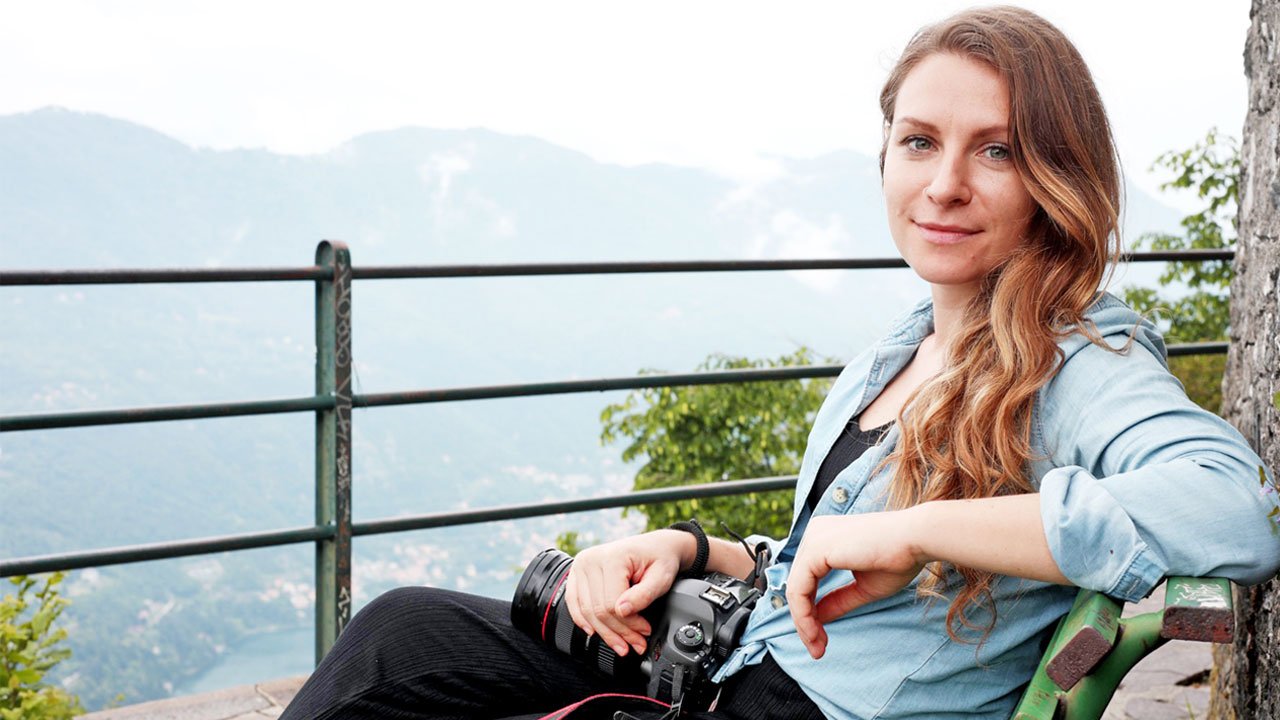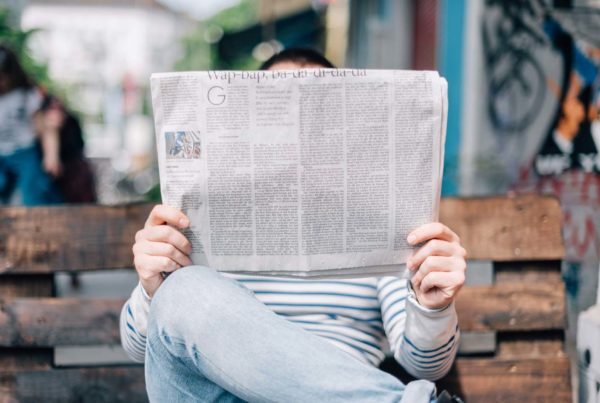I met photographer Sara Melotti in Como, Italy, this summer, to film the very first interview for The Realists. Over the course of our conversation, Melotti said something that stood out to me: “everybody today wants to be an influencer.”What is an influencer, some of you may wonder? An influencer is a person with a large following on social media. A high number of engaged followers on a platform like Instagram can bring many perks: brands offer free products, free vacations, and large sums of money in exchange for positive mentions. Influencer marketing has revolutionized the world of advertising and is now believed to be a 1 billion dollar a year market. Many teenagers and young adults now strive to become the next Instagram and Snapchat sensation in order to gain access to this world. A high number of followers on social media is now the ultimate status symbol – and some people are willing to do anything to achieve this goal.
You might think to yourself: “I do not use Instagram, this is a niche issue that is irrelevant to my life. Let teenagers and young adults worry about this.” Well, think again. The importance of popularity on social media platforms is seeping little by little into our professional lives. Sara recounted me a story about a young woman in Brescia who was applying to be a hostess at a restaurant; she was turned down because she had “only 300 followers” on Instagram. And then there’s the other side. On one of my recent film tours for The Illusionists I was introduced to a blogger and Instagram influencer, who was invited to be a panelist after the screening of my film. When I checked her Instagram page the next day, I was surprised to discover that even though she had over 100,000 followers, most of her posts had 1 or 2 comments at most – which is really unusual. Using the site Ninjalitics – which runs analytics on Instagram engagement – I saw that her account was flagged for being suspicious, with less than 1% engagement on her posts. I suspect she might have purchased followers in order to inflate her popularity and it makes me sad to think that she might have taken the place of a genuine blogger with important things to say, but who is overlooked because she does not have “enough” followers on the platform. When mentioning the issue to a French friend, she said to me, “our society is getting Uber-ized” – ratings and metrics are becoming increasingly more important in our daily lives. So you might think this issue is not relevant to you, but this phenomenon is slowly creeping into all areas of our personal and professional lives.
Photographer Sara Melotti has spent the past year uncovering the dark underbelly of Instagram: a world where wannabe influencers – and already established ones – spend inordinate amounts of time and money to artificially inflate their Instagram popularity. Melotti argues that we should call this type of activity “fraud” – and that Instagram should introduce regulations. And yet, this appears to be an open secret that few newspapers, blogs or platforms are willing to discuss. But we do. Enjoy!
– Elena

Sara Melotti in Brunate, Italy. Photo by Elena Rossini
Elena Rossini: What prompted you to write your exposé on the issue of fake influencers and the schemes they employ?
Sara Melotti: I’m just sick of seeing dishonesty and unfairness running free and unpunished on the platform. Faking popularity has become the norm on Instagram. Organic growth is now impossible to achieve, a person who uses the platform in a clean and honest way (without using “strategies”) becomes invisible, while people who are cheating the system, inflating their number and faking their popularity through fake likes and comments (fake because though they come from real accounts, they don’t come from people genuinely interested in the person’s posts but it’s just an exchange likes for likes, comment for comment) are getting rewarded and making a business out of their dishonesty. We used to call all this “strategy” but now—considering there’s one billion dollar invested in influencer marketing—the correct word to use is FRAUD. If you are selling your fake popularity to someone who thinks is legit, you are conning that person, it’s fraud.
The crazy part is that no one is doing anything about it: people keep cheating because everyone’s cheating (and they keep making things worse for everyone), companies, brands, and PR agencies keep hiring influencers with inflated numbers out of laziness or lack of knowledge; Instagram acts like they are blind yet it would take them a second to end this mess by closing down sites who sell bots services and shutting down accounts of who cheats… It’s a dog chasing its tail and people are just watching him spinning in circle without stopping it. It will all eventually collapse on itself.
Why should the public care about this issue?
Because though many think “it’s just Instagram” it’s much deeper than that. First of all we are giving the wrong message to future generations: we are teaching them that dishonesty is the norm and hard work worthless. And second because social media today is a huge active part of our personal and work lives and unfortunately our numbers matter: actors get ask for their followers count at auditions, artists of all kinds often get hired for gigs not based on their talent but on their numbers. A friend the other day told me she didn’t get a job as a hostess in a club because her followers numbers were too low… do you see where this is going? If people with little to no talent (and fake influence) get ahead or on top in life because they were good at inflating their numbers and faking their popularity thanks to bots, what kind of world are we building?

What was the public’s reaction to your article?
I published the article on a Monday and talked about it in my [Instagram] stories and by Thursday the article had been shared by a few thousand people (hundreds of people reposted and shared my Stories) and had over 35,000 views. Like it happened last year, I received thousands of messages of people who showed their support or their frustration, pain , anger, disgust for the current system. But then it kind of died off, ‘regular’ people can only reach so far, to see actual change this needs to get covered in mainstream media
Did you face any backlash?
I got a few hate messages (but I’m used to those by now) but beside that no, a lot of support from people that, like me, can’t take this rotten system anymore.
What has been the reaction of mainstream media and blogs? Have they written about your findings?
I was incredibly disappointed by the press and by the fact that no one is willing to give voice to this matter. If the press doesn’t talk about it, things will keep staying the way they are and nothing will ever change. The only newspapers who talked about it were “Il Giornale” and “Bresciaoggi” and I was invited to talk on “Radio Deejay” everyone else though (including those who talked about my article last year who was much lighter) refuse to talk about this issue saying “everyone knows these things” but from the thousands of messages received of people shocked and disgusted by how things really work I don’t think that’s the case.
Why do you think there is such reticence to discuss these issues, on the part of the media?
I think it’s uncomfortable for them to talk about this issue because there’s so much money involved in this mess, we are talking about inconveniencing a giant like Facebook, go against advertisers and to be completely honest, looking at many newspapers’ Instagram profiles, it looks like they might have done some dodgy stuff themselves.
If you could speak to the leaders in charge of Instagram, what would you recommend as a course of action?
Regulate this mess! Instagram is broken, the system is rotten, dishonest people win, honest and talented artists are invisible, meritocracy is now a utopia on the platform. It’s a Wild West out there, it needs to be regulated and it shouldn’t be as unfair as it is today. Instagram should step in and close down all the bots sites (including Fuelgram and similar sites) and it should shut down accounts that are using these tools. As much as I’m not a fan of laws, I think we need to draw a clear line that states what is FRAUD (therefore legally punishable) and what isn’t. Bots, Pods, automated stuff, paid shout outs, all that should not be allowed.
Sara Melotti is an Italian photographer and content creator. Her work has been featured by many international publications and brands, including the New York Times, Vanity Fair and Glamour.




